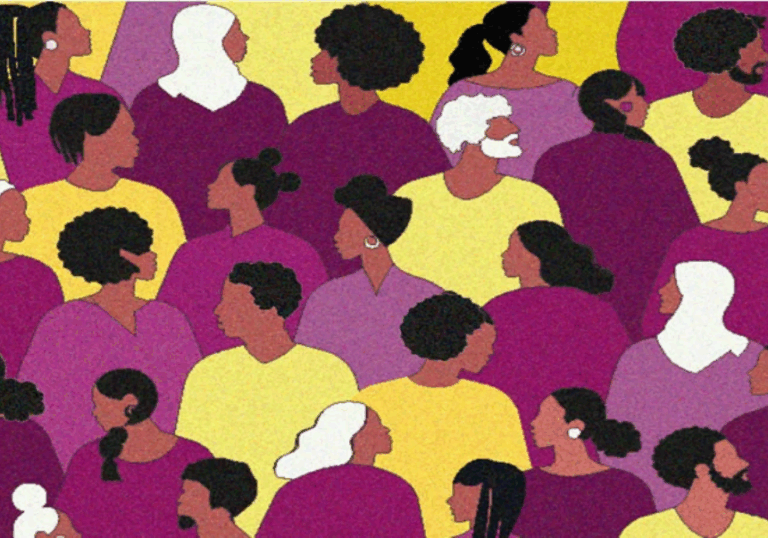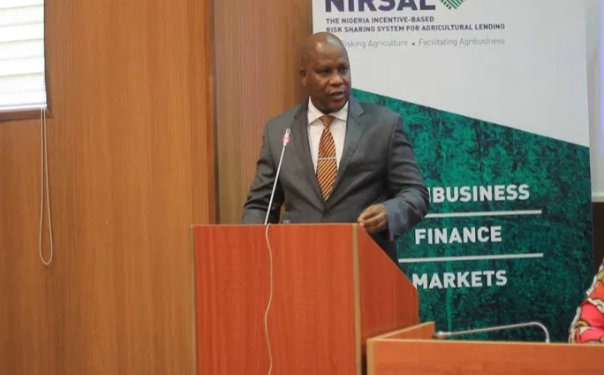Nigeria’s index case of coronavirus, an Italian national, was confirmed on February 28. Since then, the virus has spread across the country except to Cross River State if one believes the state government.
In March, President Muhammadu Buhari announced a travel ban on 15 high-risk countries. To further contain the pandemic, public gatherings of more than 10 persons were later banned, as well as non-essential travel across the country’s land, sea and air borders.
Maintain social distance; self-isolate when you notice symptoms; do not hug or shake hands; work from home, medical experts and government advised Nigerians.
At the time of initiating these precautions, including a five-week lockdown on Lagos and Ogun states and the Federal Capital Territory, Nigeria had only recorded 36 cases and one death from the disease.
Not working in Lagos
Tunji Olabode lives in Idumota, one of the crowded areas in Lagos Island. He said social distancing is an ‘uphill task’ in the city.
Mr Olabode lives with his family in a rented apartment. The four-storey “face me and face you” apartment has 10 rooms on each floor and over 50 occupants in all.
“I tried to follow the order when we were asked to stay indoors. There are lots of families in the house so how is social distancing possible?”
Mr Olabode is a public bus driver with his own vehicle. “For the first three days, I was able to restrict my family to our room. Except my wife who often went out to buy things needed for consumption, no one was allowed to breach the stay at home order. The only excuse was a visit to the toilet and bathroom.”
Unfortunately, as much as Mr Olabode tried to stay safe as advised by the authorities, his neighbours flout almost all the precautions when they meet at the well to fetch water or along the passage.
Breaching the rule to feed his family
After three days of staying indoors, Mr Olabode no longer had enough to feed his family.
“You will agree with me that survival is key and for my family to survive, somebody needed to take the risk. I put my vehicle out very early in the morning to take people from CMS to Ajah and I got back home sometimes before 9 a.m. I also repeated the same in the evening to make ends meet.”
He did this throughout the five weeks of the mandatory stay at home order. But Mr Olabode was not the only person who took risks.
Bashirat Adetunji, a female resident of Obalende, said she is aware that the virus spreads easily and how many Nigerians, including top officials, are dying. But she lives in a slum where social distancing is hard to achieve. In her apartment, residents are forced out to the street every night by heat. They would sit on benches outside their houses to enjoy fresh air before going to bed at late hours.
“Throughout the period of the lockdown, my house was disconnected from electricity supply and most residents in the street were often out at night. You see people relaxing on benches outside to charge their phones with a battery charger,” she said.
Mrs Adetunji said getting water on her street is difficult, which in turn makes it difficult for households to practise regular hand-washing.
Lockdown relaxation and realities
Nigeria has an estimated population of 200 million and while it continues to record hundreds of COVID-19 cases daily. Observers say these figures do not reflect the true situation, because the Nigerian Centre for Disease Control (NCDC) is not carrying out enough tests.
Lagos is the most populous city in Nigeria with an estimated 21 million people. The Nigeria Bureau of Statistics report that 8.5 per cent of the 21 million people living in Lagos, live in poverty — about 1.7 million people. Many also live on incomes earned largely on a daily basis.
It may be difficult to combat the virus in many parts of Lagos, the epicentre of the pandemic, due to the peculiarity and structures of its communities. Many families feed on the daily earnings of their breadwinners and journeying from one community to another, though vital, is fraught with danger.
PREMIUM TIMES findings showed that social distancing is not adhered to in most public vehicles, including the government-owned Bus Rapid Transit (BRT). Our correspondent observed passengers sitting shoulder to shoulder in public vehicles, without nose masks. This is despite orders to public transporters not to carry more than 60 per cent of their capacity. The same is obtainable in tricycles and taxis in parts of Lagos.
Business as usual
Lagos Island is also inhabited by many homeless Nigerians who pass the night under its bridges. They depend on the non-stop public activities of the state for their livelihoods. They help people to carry heavy loads from point of purchase to their vehicles or where shoppers queue for public transport.
“You don’t expect social distancing from someone whose life starts and ends in the market every day,” Suliamon Amodu, one of the porters in CMS, said. “We are trying but circumstances won’t permit. I sleep and wake up here. We pay N50 and people sweat on one another in these spaces where we pass the night.”
This newspaper realised that many of the homeless accept that the deadly virus is real but they cannot afford social distancing because of economic reasons.
Similarly, even sex workers still carry out their high-risk activities on a massive scale, despite the pandemic. In a brothel in Ado-Ajah Road, sex workers give customers sanitizers before and after sex, as a remedy for breaching the social distancing rule.
Lagosians who breach the social distancing order said they are scared to visit hospitals for tests, even when they notice symptoms.
“It seems the only sickness in Nigeria now is coronavirus. I can’t go for a test and then be added to the list of those having coronavirus while my family suffers at home,”. a respondent said.
Rather than visit the hospital, many residents said they prefer self-medication and herbal preparations when they have symptoms. For them, local herbs for treating fever, malaria or typhoid bacterial infections, will cure coronavirus if addressed early enough.
Experts weigh in
Speaking on these challenges, a public affairs analyst, Peter Adekanmbi, told our correspondent that the government needs to do more on awareness campaigns and the supply of basic amenities that will help reduce the spread of the disease.
“It is very important that the government sensitises people more, using all means available, including house to house visitation, on the danger of not obeying social distancing rules. The awareness will let Nigerians better understand the effect of the virus on human existence,,” Mr Adekanmbi said.
“I don’t think it would be out of place for local government authorities to visit homes to distribute sanitizers and nose masks. Many who cannot afford to buy will then have the opportunity to protect themselves more,” he added.
Speaking in the same vein, Bimpe Ojo, also a public affairs analyst, said “proper fumigation of communities should be done, since it has become obvious that many cannot achieve social distancing.”
This report was facilitated by the Wole Soyinka Centre for Investigative Journalism (WSCIJ) under its COVID-19 Reality Check project.



